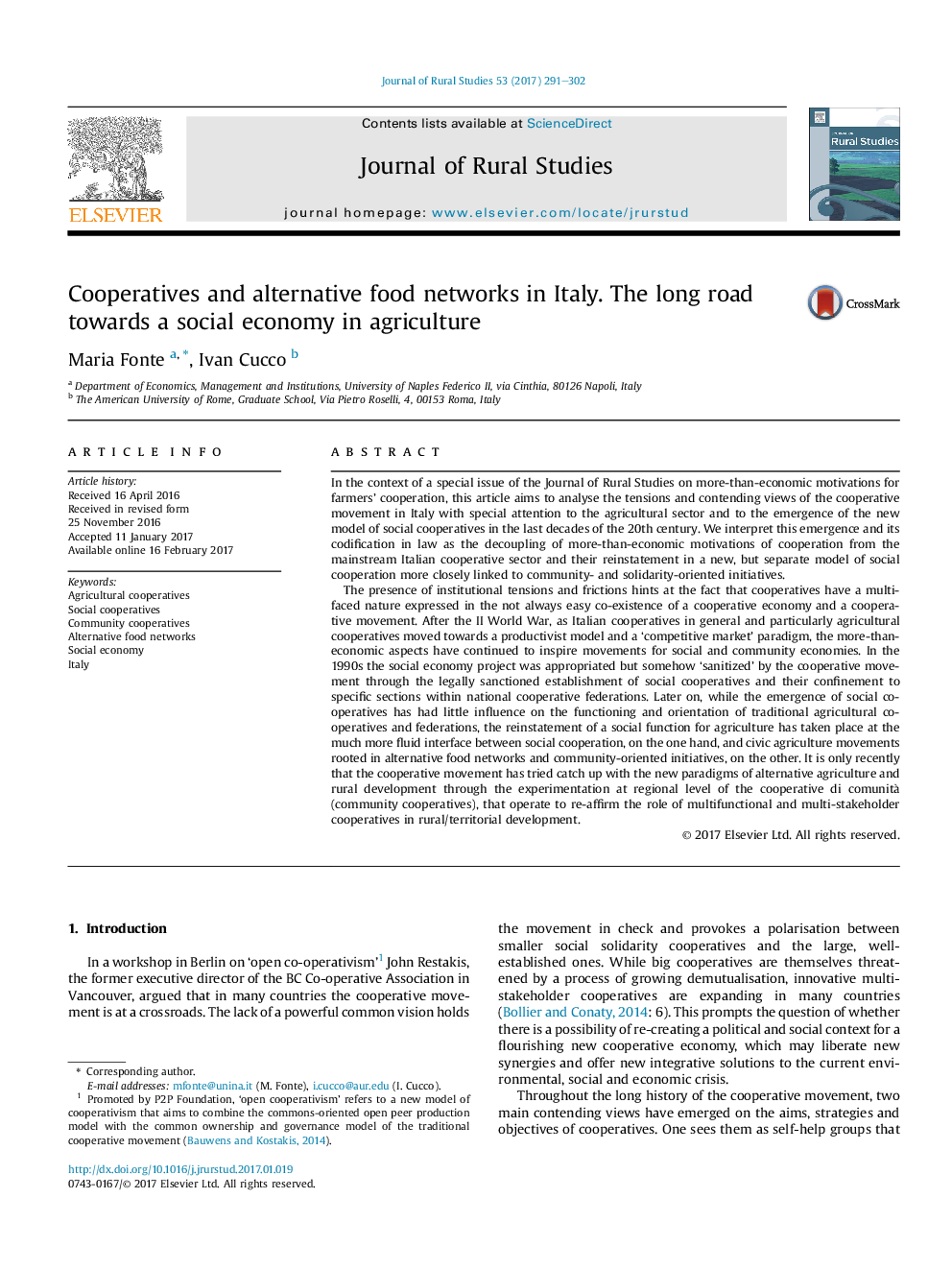| Article ID | Journal | Published Year | Pages | File Type |
|---|---|---|---|---|
| 6459975 | Journal of Rural Studies | 2017 | 12 Pages |
â¢We analyse the tensions and contending views of the cooperative movement in Italy throughout its long history.â¢We analyse the emergence of social cooperatives in Italy.â¢We analyse the codification in law of social cooperatives in Italy as the decoupling of the more-than-economic motivations from the cooperative economy.â¢We plead for a closer alliance between social cooperatives and alternative/civic food networks.
In the context of a special issue of the Journal of Rural Studies on more-than-economic motivations for farmers' cooperation, this article aims to analyse the tensions and contending views of the cooperative movement in Italy with special attention to the agricultural sector and to the emergence of the new model of social cooperatives in the last decades of the 20th century. We interpret this emergence and its codification in law as the decoupling of more-than-economic motivations of cooperation from the mainstream Italian cooperative sector and their reinstatement in a new, but separate model of social cooperation more closely linked to community- and solidarity-oriented initiatives.The presence of institutional tensions and frictions hints at the fact that cooperatives have a multi-faced nature expressed in the not always easy co-existence of a cooperative economy and a cooperative movement. After the II World War, as Italian cooperatives in general and particularly agricultural cooperatives moved towards a productivist model and a 'competitive market' paradigm, the more-than-economic aspects have continued to inspire movements for social and community economies. In the 1990s the social economy project was appropriated but somehow 'sanitized' by the cooperative movement through the legally sanctioned establishment of social cooperatives and their confinement to specific sections within national cooperative federations. Later on, while the emergence of social cooperatives has had little influence on the functioning and orientation of traditional agricultural cooperatives and federations, the reinstatement of a social function for agriculture has taken place at the much more fluid interface between social cooperation, on the one hand, and civic agriculture movements rooted in alternative food networks and community-oriented initiatives, on the other. It is only recently that the cooperative movement has tried catch up with the new paradigms of alternative agriculture and rural development through the experimentation at regional level of the cooperative di comunità (community cooperatives), that operate to re-affirm the role of multifunctional and multi-stakeholder cooperatives in rural/territorial development.
